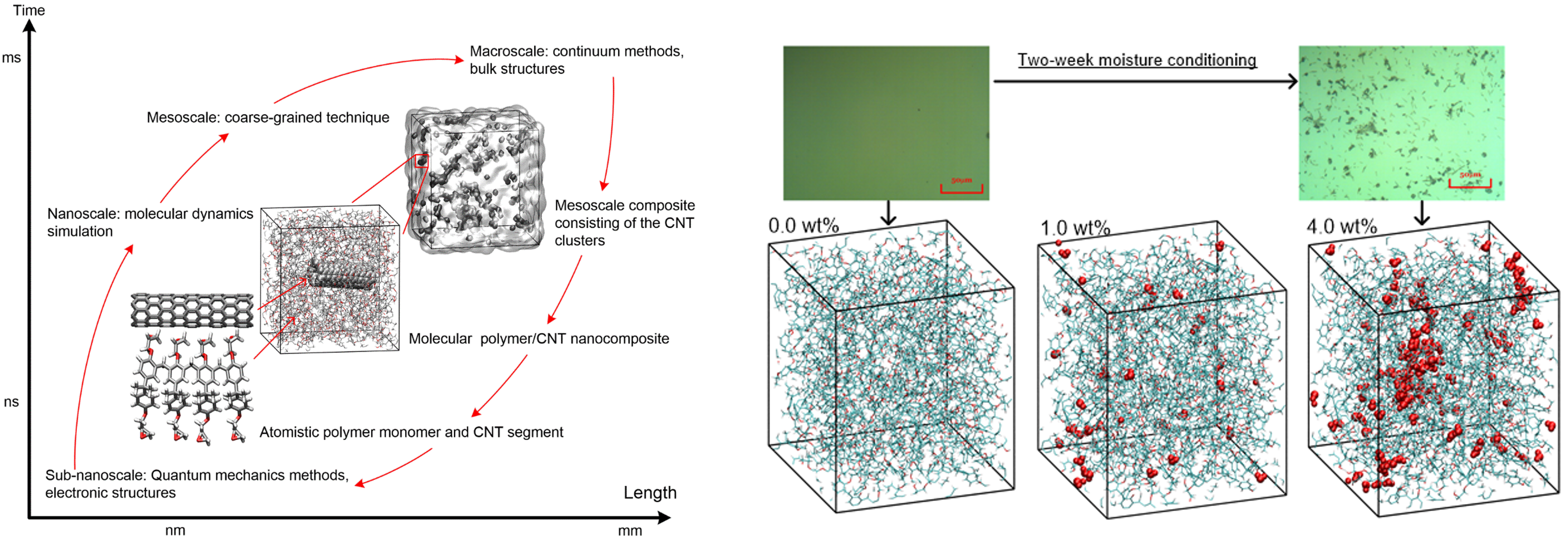Molecular Dynamics (MD) represents a cutting-edge computational technique that has revolutionised our ability to investigate and understand the properties and behaviours of materials at the atomic and molecular level. In situations where traditional laboratory testing is impractical, costly, or even impossible, MD offers an invaluable alternative, providing researchers with a powerful virtual laboratory where they can explore a vast array of material phenomena with unprecedented detail and accuracy. Complementing MD simulations, Multiscale Modelling techniques enable researchers to bridge the gap between atomistic simulations and macroscopic material behavior, facilitating the study of material phenomena across multiple length and time scales. By integrating data from MD simulations with higher-level continuum models or experimental data, Multiscale Modelling provides a holistic understanding of material properties and behaviours, offering predictive capabilities that can inform the design and optimisation of advanced materials and structures. I and my team members are advancing these numerical techniques as a powerful tool to support our cutting edge research on composite materials.
Above figure shows the concept of multiscale modelling, from nanoscale to macroscale. The molecular models are developed in this group for the prediction of polymer durability under various environmental conditions.
